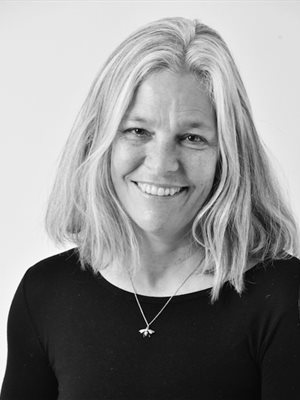
Lynne Krog, head of research at Spark Media
As a specialist in local media, and in connecting brands with local communities through print and digital advertising solutions informed by research insights, Spark Media wanted to know the answers to these questions.
It collaborated with full-service research house, BMi Research, in commissioning Borderless Access to conduct an extensive survey on economically active South Africans, their food and grocery purchase habits, and their main meal eating habits. Interviewing a nationally representative demographically quotad sample of 100 adults a day across 30 days it was able to track the influence of load shedding on main meals, how main meals were heated, and what consumers had at home to help them cope with load shedding.
To support this, a number of other pertinent questions were asked, from respondents’ moods each day and the type of main meal they ate (including who they ate it with and what they were doing at the time) to exactly what food they ate and the drinks they had with it.
Questions regarding food and grocery shopping were also on the survey, what % of the market shop on a daily basis and when do we see spikes in activity, also providing details about the average size and spend of grocery shops, what was bought, where it was bought, and the emotions around the shop itself.
“These are critical questions. They help us understand why South Africans are buying some products and not others, how they have had to change their buying and eating habits to fit in with load shedding, and how this makes them feel. As an advertiser, these are important factors to get to grips with, as they shape consumers’ behaviour and therefore present an opportunity to tap into this behaviour through effective advertising,” says Lynne Krog, head of research at Spark Media.
Respondents’ answers to the questions were fascinating, and revealed just how much South Africans are reorienting themselves to cope with load shedding.
For instance, 20% of daily main meals are eaten at breakfast time; up to 4.6 million additional quick service/restaurant meals are being sold, to be eaten as the main meal of the day; 15% of South Africans eat their main meal alone in front of a screen; Sundays, payday and month-end are key days for specific types of main meals; and 19% of people are opting for convenience. There has been a significant upturn in online shopping, particularly Checkers Sixty 60, which competes head-to-head with takeaways when load shedding hits at the same time that South Africans are preparing their main meals.
“Retail advertisers can now use these and the plethora of other insights the survey yielded to inform their print and digital advertising campaigns. Stores selling ready-to-eat meals should maximise advertising those meals when load sheddding hits stage 4 or 6, but increase advertising around typical Sunday, payday or month-end main meal ingredients at those times,” Krog adds.
The total sample achieved was 3,089, a sample of approximately 100 a day for 30 days. The research represents a population of approximately 30 million economically active online South Africans and covers 900 million main meals eaten in a month between August and September 2023. Quotas were applied to gender, age, income, province and grocery shopping responsibility to ensure representativity.
Krog says advertising in community newspapers and on community media websites efficiently targets these consumers, but combining it with detailed research insights such as these hyper-focuses that advertising with laser precision.
“At Spark Media we add value to brands and their advertising efforts by providing them with access to sound consumer research. These insights enable them to tailor their print and digital advertising and media strategies to reach the right audience, at the right time in the right place,” Krog concludes.
Spark Media provides retail advertisers with highly targeted, local print advertising solutions in 115 local paper titles and 58 local news websites. It distributes 2.9 million newspaper copies each week, and engages 5 million online users each day.
Our teams are currently presenting their research findings across South Africa. To schedule a presentation email Lynne Krog at az.oc.aidemkraps@kl.
